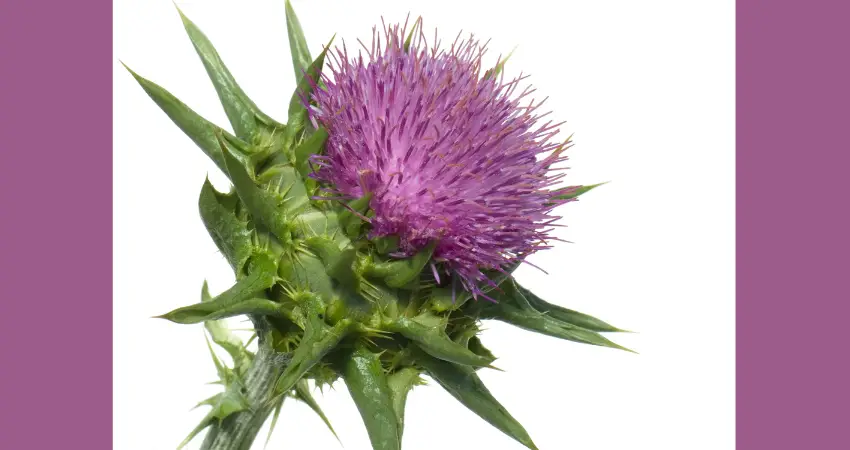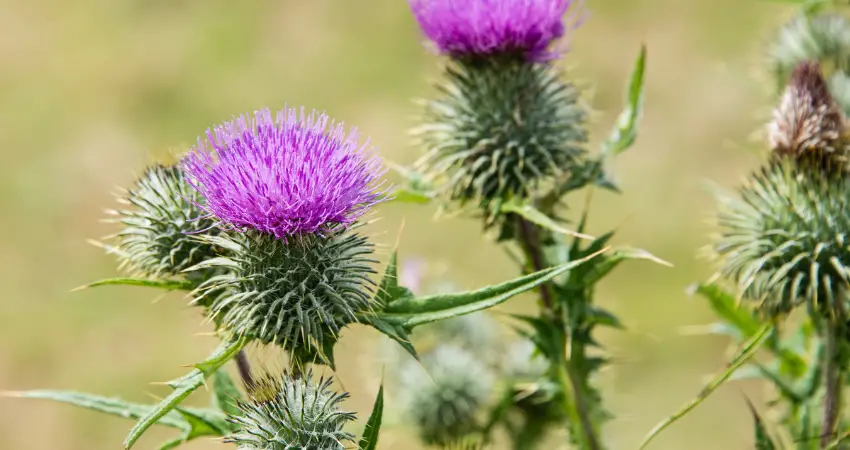Introduction
Milk thistle is a popular herbal supplement used for liver health. Many people take it for its potential benefits like detoxifying the liver and improving liver function.
On the other hand, pain medicine is a go-to for dealing with anything from a headache to chronic pain.
The question that arises is, can you mix milk thistle and pain medicine? In this article, we’ll dig deep into what you should know before combining these two.
What is Milk Thistle?
Milk thistle is a plant that comes from the same family as daisies.
It has been used for hundreds of years for its medicinal properties.
People often take it in the form of a pill, powder, or even a tea.
The main active ingredient in milk thistle is called silymarin, which is believed to have liver-protecting benefits.
What is Pain Medicine?
Pain medicine includes a range of drugs used to relieve pain.
These can be over-the-counter like ibuprofen and acetaminophen, or prescription drugs like opioids. Each type of pain medicine works differently and comes with its own set of risks and benefits.
Commonly Used Pain Medications
Over-the-Counter Pain Meds
Acetaminophen (Tylenol)
This drug is often used for headaches, minor aches, and pains. It can also reduce fever.
Ibuprofen (Advil, Motrin)
Ibuprofen is widely used for pain relief, inflammation reduction, and fever lowering.
Naproxen (Aleve)
This medication is used for pain relief and reducing inflammation. It’s longer-lasting compared to ibuprofen.
Aspirin
Aspirin is another over-the-counter option used for pain relief and reducing inflammation. It’s also used to prevent heart attacks.

Prescription Pain Meds
Opioids
Oxycodone (OxyContin, Percocet)
Commonly used for moderate to severe pain relief.
Hydrocodone (Vicodin)
Also used for moderate to severe pain.
Morphine
Used for severe pain, often in hospital settings.
Fentanyl
Extremely potent and used for severe pain, usually in medical settings.
Non-Opioids
Celecoxib (Celebrex)
Used for pain and inflammation, particularly for conditions like arthritis.
Tramadol (Ultram)
Used for moderate to moderately severe pain.
Gabapentin (Neurontin)
Often used for nerve pain or to treat seizures.
Pregabalin (Lyrica)
Similar to gabapentin, used for nerve pain and fibromyalgia.
Topical Pain Relievers
Lidocaine
Often found in creams, patches, and sprays for localized pain relief.
Capsaicin
Derived from chili peppers and used in creams for conditions like arthritis.
Interactions Between Milk Thistle and Pain Medicine
The Good
Some studies suggest that milk thistle can actually protect the liver from damage that might be caused by certain medicines, including pain meds that can be hard on the liver like acetaminophen. But remember, more research is needed in this area.
The Bad
On the flip side, milk thistle can also interact with medicine in ways that aren’t so great.
For instance, it might make some drugs less effective or increase their effects to dangerous levels. This is especially concerning with strong prescription pain medicines.
The Unclear
A big challenge is that the science isn’t clear yet. Different studies say different things, and there is no final answer on whether it’s safe or not to mix milk thistle and pain medicine.
What Do Doctors Say?
Most healthcare professionals recommend being cautious. If you’re thinking about mixing milk thistle with pain medicine, talk to your doctor first. They can provide advice based on your medical history and other medications you may be taking.
Practical Tips
- Talk to a Doctor: Always consult a healthcare provider before mixing supplements with medications.
- Read Labels: Make sure you’re aware of the active ingredients in both the milk thistle supplement and the pain medicine you’re taking.
- Start Small: If your doctor gives you the green light, start with a small dose and monitor how your body reacts.
Conclusion
The interactions between these two can vary from person to person and can sometimes be harmful.
Always consult a healthcare provider for personalized advice tailored to your medical history. Stay safe and take medications responsibly.
Sources
https://pubmed.ncbi.nlm.nih.gov/31082119/


